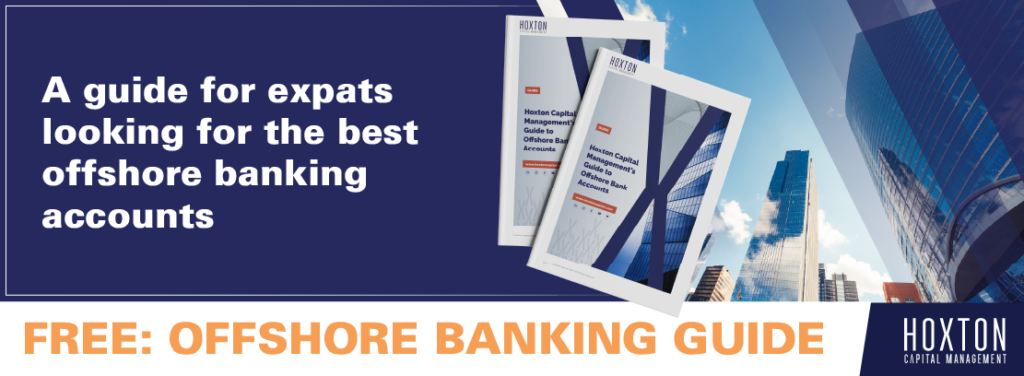This in-depth guide includes:
- What is an offshore bank account?
- What reasons are there for opening an offshore account?
- What types of offshore account are there?
- Advantages of offshore accounts
- Potential disadvantages
- Opening an offshore bank account
- Offshore bank accounts for expatriates
FAQs
The best online offshore bank accounts for expats are HSBC, Lloyds Bank, Money Corp & NatWest. Read more here.
There are also potential disadvantages to offshore accounts, including:
- Higher fees
- Limited access
- Regulatory
- Compliance
- Reputation
- Risk
- Security risks
- Lack of FDIC or other government insurance
It is always important to consult with a qualified financial adviser.
The reputation of offshore banks has been tarnished by cases of fraud and money laundering in the past, which can create a negative perception among some people. However, it is important to note that not all offshore banks or account holders engage in illegal or unethical activities. Many reputable banks and financial institutions operate in offshore jurisdictions.
It is important to research the reputation and track record of any bank or financial institution before opening an account and to ensure that it is properly regulated and supervised by the relevant authorities. It is also important to comply with all relevant laws and regulations, such as tax reporting requirements and anti-money laundering laws, to avoid any perception of wrongdoing.
Working with a qualified financial adviser or attorney can help ensure that you are taking the necessary steps to comply with all regulations and maintain a positive reputation while still taking advantage of the potential benefits of offshore banking.
There are a number of reasons why someone might choose to open an offshore account, including:
- Diversification: Holding assets in multiple countries can help to spread risk and reduce the impact of political or economic instability in any one country.
- Access to foreign investments: Offshore accounts can provide access to investments that are not available in the account holder’s home country, such as foreign stocks, bonds, and mutual funds.
- Tax advantages: Some offshore jurisdictions offer favourable tax rates to non-residents, making keeping assets offshore attractive. However, it is important to note that tax evasion is illegal, and using an offshore account to hide income or assets from the government is a criminal offence.
- Privacy: Offshore accounts can offer greater privacy and confidentiality than domestic accounts, which may be subject to government scrutiny or public disclosure.
- Estate planning: Offshore accounts can be used to manage assets and provide for future generations, particularly in countries where inheritance laws are complex or uncertain.
All the things you need to know
Our financial advisers created this guide. Our advisers are some of the best in the world and understand the pains of having assets split worldwide. They have put together this easy-to-follow guide to help and inform all expatriates who may have questions about Offshore Banking.
This guide was last updated in May 2023.
The financial advice provided in this guide is for informational purposes only and should not be considered a substitute for professional financial advice. The information in this guide is not tailored to your financial situation and may not be suitable for your needs. Before making any financial decisions, consult a licensed financial adviser who can provide personalised advice based on your circumstances. The author and publisher of this guide are not responsible for any financial losses or damages that may result from using the information provided herein. The information in this guide is current as of the publication date (04/05/2023) but is subject to change without notice.
How can we help you?
If you would like to speak to one of our advisers, please get in touch today.







